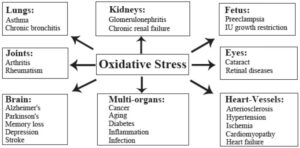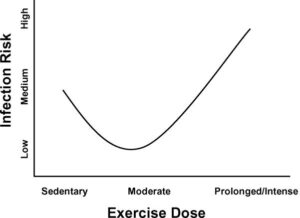The topic of “Recovery” is gaining more and more popularity in recent years. Many athletes and non-athletes are being introduced to how the body and its different human systems react to stress. Ahh yes! Stress! This word has many meanings! It can mean many different things to many different people, but one thing is for sure…too much of it can be a bad thing!
Stress
Stress comes in many forms:
- Physical
- Mental
- Emotional
- Environmental
- Social
- Etc.
Each of these avenues of stress can create a host of different responses on the body’s systems:
- Nervous system
- Hormones
- Hydration
- Adrenal
- Musculoskeletal
- Digestive
- Etc.
How a person receives stress and then how their body expresses stress is different. Here is an example: Many times, when I am working with Type A personality clients, they don’t recognize that they are even carrying stress. Being Type A, they have the mental fortitude to be able to power through, only get 5 hours of sleep, not eat much, barely drink any water…but yet they are losing muscle and gaining body fat! They don’t realize the impact on their health because they are so hyper-focused on their job, a situation, or a goal.
It may be a month or so when the impact is felt – when they can’t fit into their clothes or they have a physical stress response. For example, they get very sick, develop a migraine, their blood pressure is high, they start having diarrhea…or their doctor tells them their blood work is way off!
At that point stress has reared its ugly head and produced a physical symptom on their body that of course they don’t like! Now it’s not only taking them away from their lifestyle, but if they have any kind of body composition or athletic performance goal, they are greatly suffering in that area too!
1. How do we identify and catch stress before it’s too late?
2. How do athletes and non-athletes manage stress to perform better in their sport or job?
Let start with Question Number One
How do we identify and catch stress before it’s too late?
Recovery rate from workouts, improving sleep quality to feel rested, healing an injury, or mentally healing from a traumatic experience are all extremely important. Being able to understand when you need to “down shift” or “slow down” or “deload” is important for longevity but also for short term health and performance.
When your body and its different human systems get pounded day in and day out, without getting proper recovery (sleep, stress management, hydration, etc.) something is going to give. The first layer will be your immune system. The immune system is your body’s first layer of defense to stress. It will help to protect you from external viruses and bacteria that try to infect your body. It’s a combination of lymph, white blood cells, and antibodies that help protect against infection. It also helps you rebuild and recover from injuries and tissue damage.
Oxidation & Antioxidant
Have you ever heard of the word “oxidation?” And how about the word “antioxidant?”
“Oxidation is a normal and necessary process that takes place in your body. Oxidative stress, on the other hand, occurs when there’s an imbalance between free radical activity and antioxidant activity. When functioning properly, free radicals can help fight off pathogens. Pathogens lead to infections.” (1)
Although free radical activity helps fight off pathogens, the immune response itself can become inflammatory and cause stress of its own in excess and without a balance of antioxidants.

https://www.ncbi.nlm.nih.gov/pmc/articles/PMC3614697/
One way to identify stress is to listen to your body. Be self-aware. If you start to feel “run down,” take the steps needed to recover. We have all been there…Just a small headache, a little tickle in your throat, sneezing and feeling cold or hot…these are all signs that your body is saying slow down! Listen to it! This is a sure sign that you need to take a step back and rest.
Question Number Two
How do athletes and non-athletes manage stress to perform better in their sport or job?
When your body is under stress from a heavy or hard workout, family issues at home, mental stress at work, or even self-induced anxiety, it can have an effect on your immune system. This in turn will have a direct effect on your recovery! So, is it wise for people to “train hard all the time” or “no pain – no gain” or “never take a rest day”… Absolutely not!
Letting your body heal, rest, restore, and recover will not only rejuvenate your body from any stress, but also BOOST your immune system! Here is a great graphic that explains the documented relationship between upper respiratory tract infections and exercise intensity:

https://www.ncbi.nlm.nih.gov/pmc/articles/PMC2803113/
This study from the Exercise and Sport Sciences Reviews (3), shows that exercise, recovery time, and stress management when properly programmed can have an immune boosting effect. OR if mismanaged, can actually have a negative effect. And since exercise is a form of stress, this needs to be considered in the big picture to know when it’s important for you to recover and rest to improve performance, but also to reduce your risk of infection!
Understanding the Factors of Stress
So simply put, a person must understand all of the factors of stress in their lives, and then make educated decisions on what kind of “exercise stress” they need to improve performance, recover, and actually boost immunity. This is yet another reason why it is important to have a Professional Coach, or Health Advisor that understands these scientific principles to help manage stress, recover faster, and boost the immune system.
To expect that the general population know these scientific facts is wrong. This I why there are professionals in fitness, nutrition, and recovery coaching that help clients expedite this process and deliver them the advice and tips they need to be able to manage their health for the short and the long term. We have only discussed the relationship between stress, exercise, and immunity. But there are many factors that can affect your body’s systems and stress level!
- Nutrition
- Blood Chemistry
- Micronutrients
- Antioxidants
- Physical recovery therapies
- Psychology
- Etc.
All of these methods should also be considered to help an individual achieve optimal health and performance.
My Advice
Seek out a professional coach if you are looking to maximize your recovery and boost your immune system. Each individual is different. Their lifestyles are different. Their methods of management and application of specific recovery methods will be different. There is a lot to consider. Seek out a professional that can deliver you the tools needed. Make sure they are using scientific principles, and then using those principles to apply the right methodology to what you need to improve your recovery and immunity.
Ultimately, the connection between recovery, immunity, and health is balance.
Thank you!
Chris Edwards, TriCore Owner and Managing Director
1. https://www.healthline.com/health/oxidative-stress
2. https://www.healthline.com/health/cold-flu/fun-facts
3. https://www.ncbi.nlm.nih.gov/pmc/articles/PMC2803113/
4. https://www.ncbi.nlm.nih.gov/pmc/articles/PMC3614697/
[/fusion_text][/fusion_builder_column][/fusion_builder_row][/fusion_builder_container]



